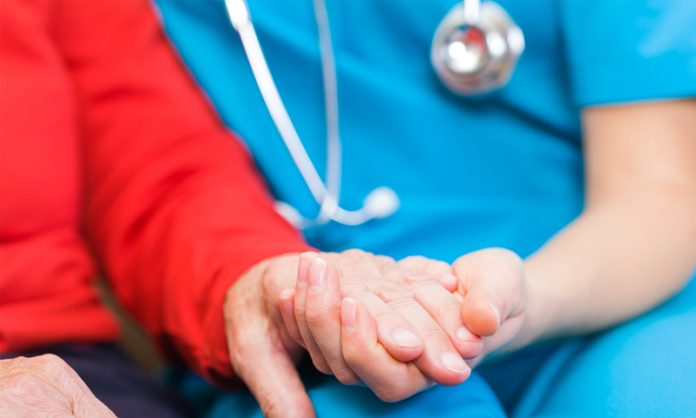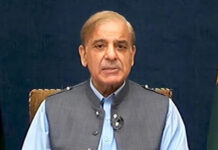Community Health Workers across South Asia are calling for their work to be recognised as work, describing in a press conference how governments expect them to work in often dangerous conditions without minimum wages or PPE.
Speaking on the International Day for Universal Health Coverage, community health workers from India, Nepal and Pakistan shared their experiences – describing unsafe work environments, stigma and ostracisation – that they say have been made worse by the pandemic, and the fact that governments don’t treat their work with respect.
Known as Accredited Social Health Activists or ASHAs in India, Lady Health Workers in Pakistan and Female Community Health Volunteers in Nepal, there are over one million community health workers across South Asia who deliver health care to hundreds of millions of people, mostly in rural areas.
Anand Grover, the Former UN Special Rapporteur on the Right to Health said that Community Health Workers make important contributions and that the entire health care system rests on the primary health care they provide: “I’ve never met a Community Health Worker who doesn’t passionately believe in her work,” said Grover.
However Grover added that this same passion also contributes to their discrimination, and that there is a reason why community health workers are almost exclusively women: “Significantly, the governments have made sure that they are all women – in India ASHA are all women by law – it is because they can easily discriminate.”
Yamuna Tekam an ASHA worker from the Nagpur Municipal Corporation Employees Union (NMCEU) in India said that some of her co-workers had tested positive for Covid-19 after being sent to work in a hotspot area without masks.
“When people were told to stay at home, our family put pressure to not go outside but from the administration there was pressure to work.”
“If we are doing work related to Covid-19 we should be given PPE kits and payment should be given to us for the work that we do,” said Tekam.
Halima Zulqarnain the Central President of the All Sindh Lady Health Workers and Employees Union (ASLHWEU) from Pakistan called on people to treat Lady Health Workers “with respect and understand that we are doing a safety job for them.”
“During the coronavirus many people were not going to the office, yet many Lady Health Workers were out on the streets providing safety to everyone, but we were not given any PPE, no compensation for this precarious job,” she said. “More than 22 of my colleagues in my own team have tested positive for Covid-19.”
Pakistan is the only country in the region that pays Community Health Workers a minimum wage, after a long and difficult campaign led by the workers themselves. Yet despite the success of their campaign, Lady Health Workers in Pakistan face particularly dangerous conditions due to stigma and disinformation surrounding their role distributing polio drops.
Gita Thingg, Vice President of the Nepal Health Volunteers Association (NEVA) described how community health workers were expected to travel long distances to help reduce maternal and child mortality while still being considered by the government as volunteers.
“Governments give so many responsibilities to the Community Health Workers but they don’t pay in terms of our work. We use our own money to travel from here to there. We get branded as volunteers but we have a duty to serve the community.”
Jyotsana Shakya, Treasurer of the Health Volunteer Organisation of Nepal (HEVON), described how community health workers took their own initiative to provide information about Covid-19 prevention:
“Even before lockdown began we were already making public announcements through loud speakers” ‘wear a mask, social distance,’” she said.
Rosa Pavanelli the General Secretary of Public Services International (PSI) said:
“Community health workers normally serve the most remote areas, the rural areas, and the population that are more disadvantaged, with less possibility to access quality services, therefore, training them, recognizing the work they do giving them all the means that are necessary is fundamental to provide the primary health care.”





